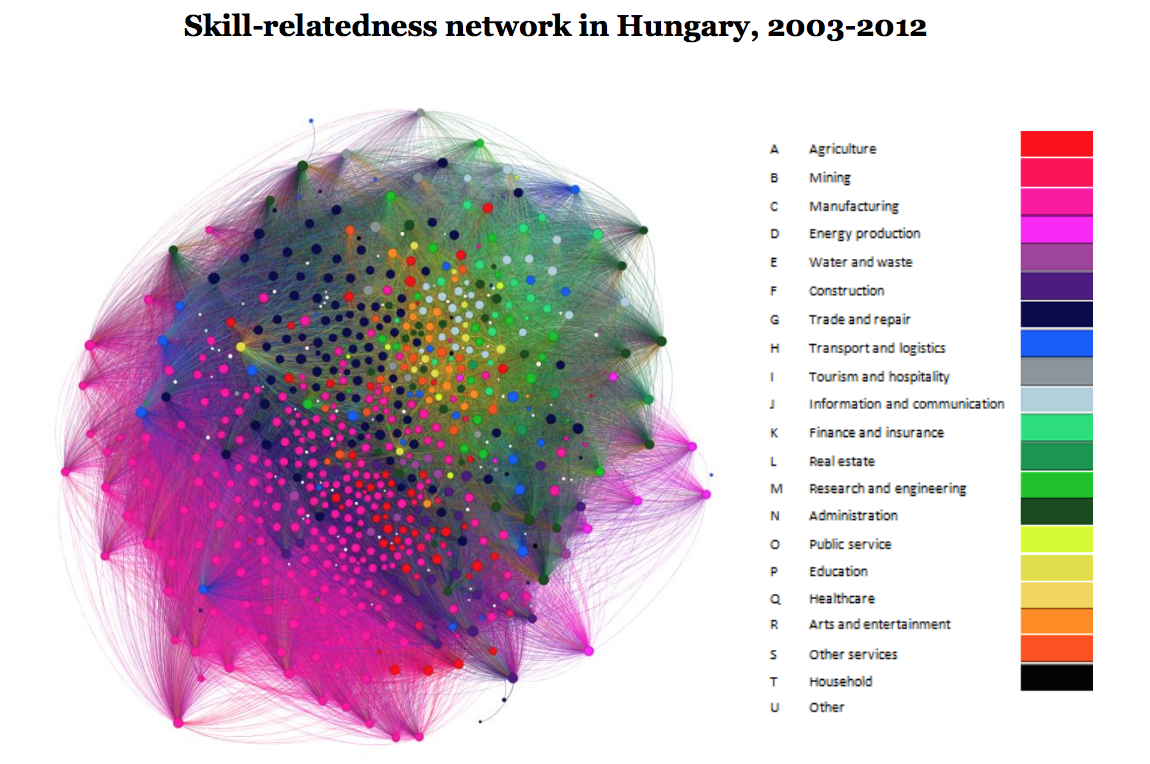On October 30, the guest speaker at the CNS Seminar Series was Balázs Lengyel, who gave a talk on "Labor Mobility, Social Networks and Economic Growth in Cities". Balázs is a Research Fellow at the Institute of Economics of the Hungarian Academy of Sciences, where he leads the Agglomeration and Social Networks Lendület Research Group.
Balázs started his talk with a review of some studies by urban economists where the main argument is that global population concentrates in metropolitan areas because firms and individuals benefit from sharing goods (infrastructure, higher education, etc), there is a better matching on labor markets, and learning from peers happens in cities. Yet, there is little understanding about the inter-firm learning through social ties in urban environments and how collaborative social networks influence urban success.
During the talk Balázs showed, with empirical evidence, how the movement of individuals between firms create new social ties and have two effects: (1) a direct effect, when new employees bring new knowledge to the firm, transferring new but technologically related skills in the product space, and (2) an indirect effect, with previous colleagues tending to continue communicating and in some cases working together.

Skill-relatedness network of four-digit industries. Figure from: Zsolt Csafordi & Laszlo Lorincz & Balazs Lengyel & Karoly Miklos Kiss, 2016. "Productivity spillovers through labor flows: The effect of productivity gap, foreign-owned firms, and skill-relatedness," IEHAS Discussion Papers 1610, Institute of Economics, Centre for Economic and Regional Studies, Hungarian Academy of Sciences. https://ideas.repec.org/p/has/discpr/1610.html
One of the direct effects that can be observed in labor mobility is the increase in the performance of the receiving firms, as more new employees go to a firm, the productivity grows. However, in order to do so, it is necessary to have a cohesive collaboration network inside the firm to exploit the new knowledge brought to the firm.
Lastly, Balázs argued that the effect of the mobility of workers on regional productivity is not straightforward: it needs to create social ties between the firms to stimulate growth.
Blog post by Luis Guillermo Natera Orozco
Balázs Lengyel related papers:
Balázs Lengyel, Rikard H. Eriksson; Co-worker networks, labour mobility and productivity growth in regions, Journal of Economic Geography, Volume 17, Issue 3, 1 May 2017, Pages 635–660, https://doi.org/10.1093/jeg/lbw027
Zsolt Csafordi & Laszlo Lorincz & Balazs Lengyel & Karoly Miklos Kiss, 2016. "Productivity spillovers through labor flows: The effect of productivity gap, foreign-owned firms, and skill-relatedness," IEHAS Discussion Papers 1610, Institute of Economics, Centre for Economic and Regional Studies, Hungarian Academy of Sciences. https://ideas.repec.org/p/has/discpr/1610.html